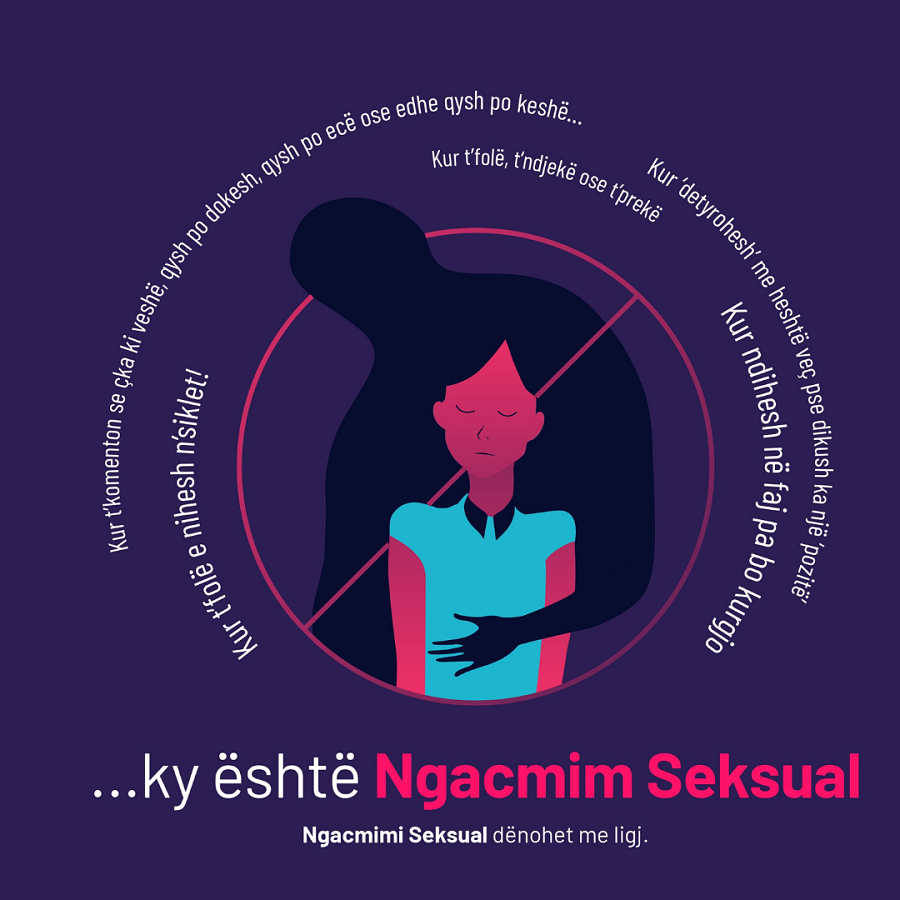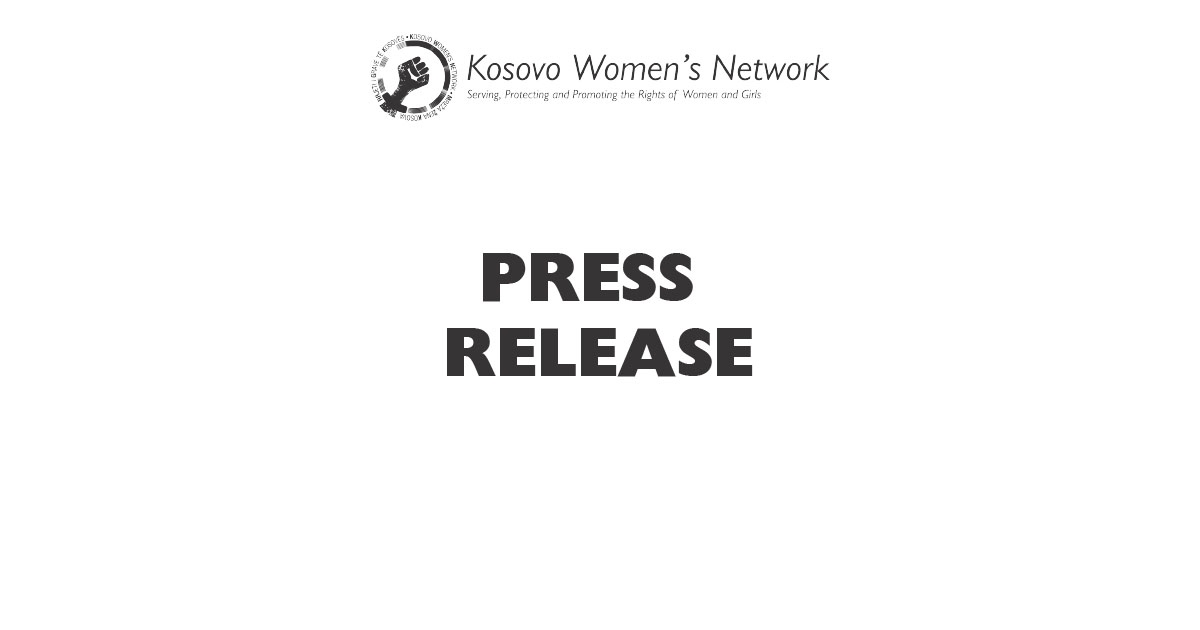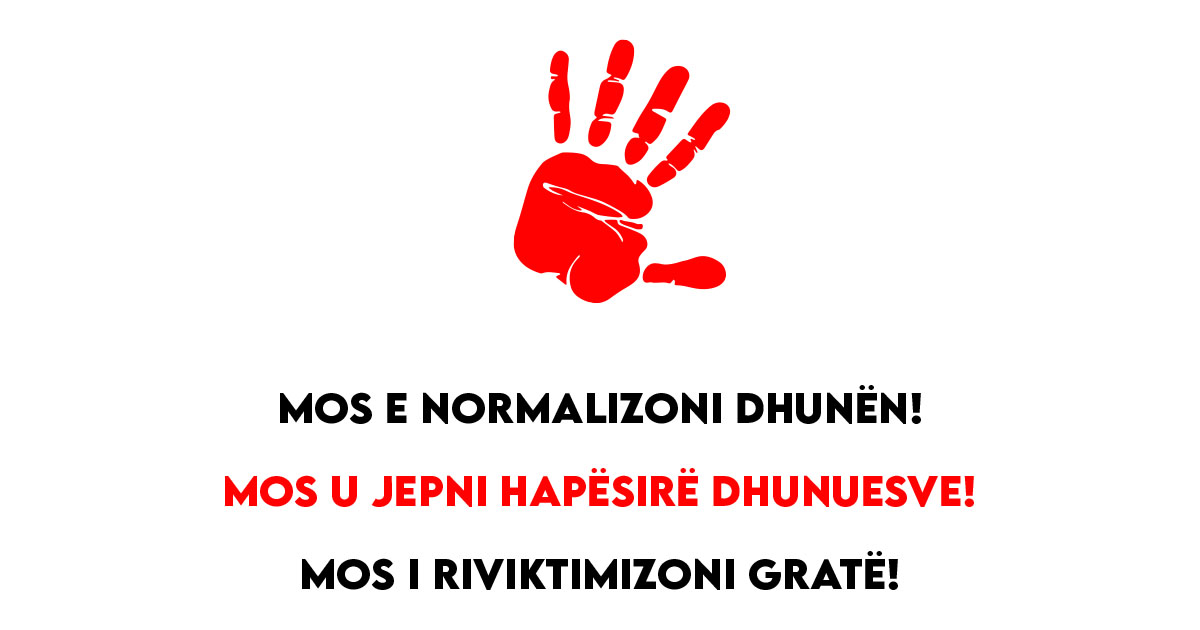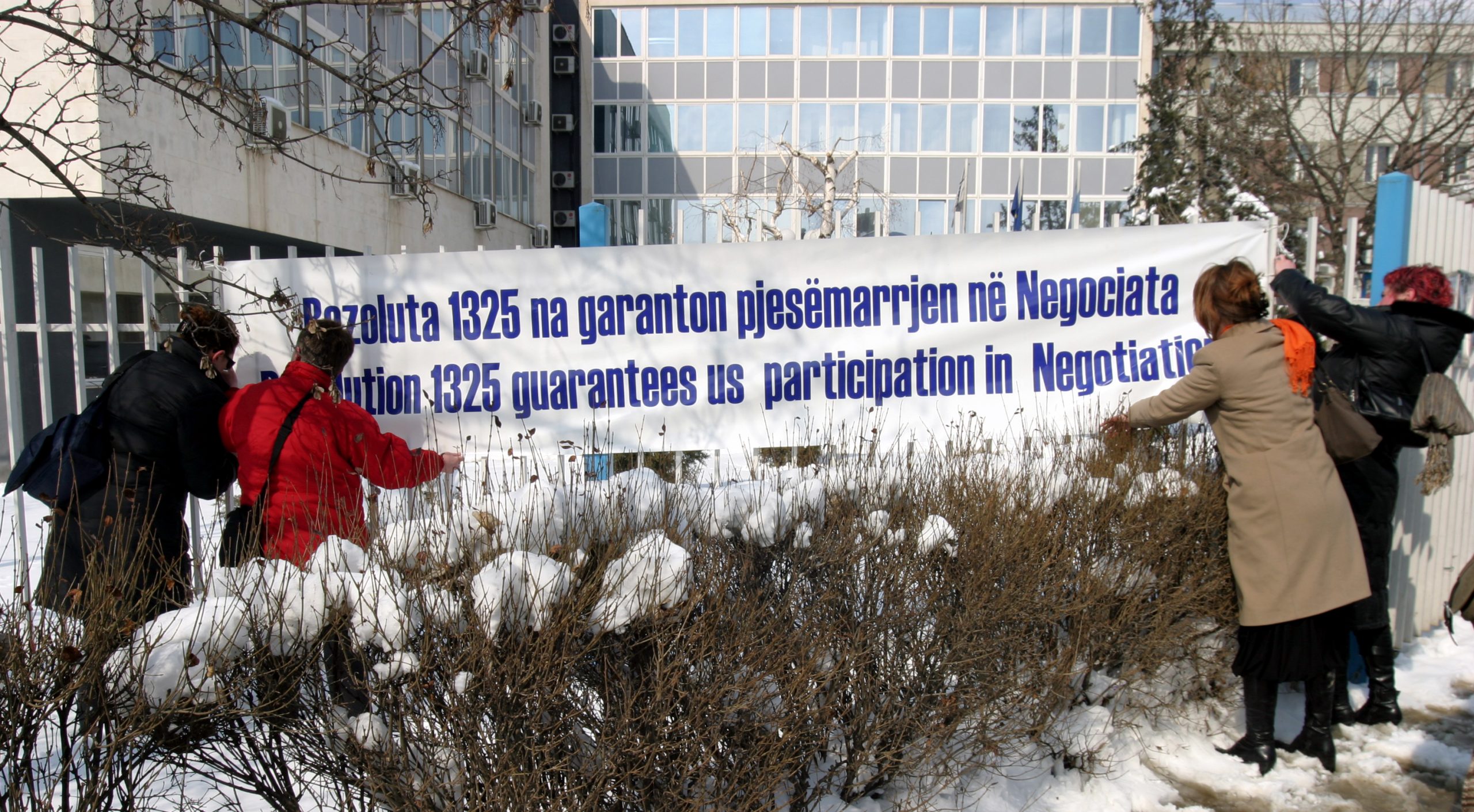With great concern, the Kosovo Women’s Network (KWN) has recently received the Final Judgment of the Kosovo court of Minors, acquitting a person accused of sexual abuse with persons under the age of 16.
Kosovo judiciary started to deal with the case six years after the first reporting. The trial lasted four years. The verdict says that the accused is acquitted because “in the absence of evidence” the defendant’s guilt has not been proven.
In 2012, a minor, then 9 years old, helped by her mother reported a case of abuse over the years by her stepfather. The Basic Prosecutor’s Office in Pristina received the Criminal Complaint on 27 July 2012. They have delayed the case causing trauma to the abused minor, as they interviewed the victims several times until 2022 – when the verdict was given.
According to the verdict the court and the prosecution have failed to prove the guilt of the defendant, constantly giving the reasons that KWN has decided to quote for the sake of revealing the patriarchal mentality deeply entrenched in the judicial system in Kosovo:
“The context in which the case of abuse was reported, by the mother of the minor, is controversial.”
The court says this, alluding that the minor’s mother reported the case of the girl’s abuse, only after noticing that “her cohabitation with the defendant is heading towards an irreparable end.” By “irreparable end” they refer to the constant physical violence that the defendant exerted on the minor’s mother.
Thus, although the court admits that the constant physical violence has been repeated, at the same time, the court finds that:
“The court takes it into account that in such cases when sexual assault or harassment occurs, or sexual abuse takes place within family members especially in the case when the will of one party is lacking, it is expected to notice a change in behaviour and disordered relationships between family members of the family alleged to be involved”.
Further, except that in the paragraph above, the court considers sexual abuse of minors as a “disordered relationship” and “lack of will of one party”, the same also raises the tendentious, and extremely disturbing question:
“If the relationship between the victim-witness (mother of the girl) and the defendant had not deteriorated, would she have reported the case of sexual abuse of her daughter?”
By making this question the court blames the witness for not reporting, and at the same time, raises questions that are completely subjective, and are not related to the case, which is the sexual abuse of a 9-year-old minor since 2005 (when the minor had 8 years old) until 2011.
Further, we are quoting some of the other scandalous justification of the court, namely, the Juvenile Department, regarding the acquittal of the defendant:
Referring to the fact that the injured minor has constantly provided new details, and the dates during which she was abused, the court emphasizes:
“This change in the statement over time, including other cases that were not shown earlier in the court’s assessment, reflects a tendency of the injured minor first to DRAMATIZE the situation and present the defendant as particularly abusive in relationship with children.”
The court considers that a minor, who at the time of reporting was 11 years old, is able to create scenarios of sexual abuse, even in detail, (for the reason that the court lists the cases that the minor explained to him, very clearly and fluently).
However, it considers that the defendant’s guilt is questionable, because “it is completely unbelievable if the alleged sexual assault existed, the victim would not have expressed it or had been noticed by other people, including her mother” despite the fact that there is an evidence for the constant physical violence that the defendant caused to the minor’s mother.
The legal violations in this decision are numerous, starting from the Basic Prosecutor’s Office of Pristina, which did not qualify the criminal offense in accordance with article 198 paragraph 2, related to paragraph 5 point 7 of the Criminal Procedure Code since the suspect was the victim’s stepfather, but the qualification was made only with paragraph 2 of the CPC, which was a mitigating circumstance for the accused.
Further, the Basic Court of Pristina acquits the suspect, on the grounds of “lack of evidence” even though numerous shreds of evidence have been presented to the same court and the court has refused to process and examine them, including the following evidence:
The letter written by the injured party, in which the same confesses about the serious emotional and physical condition, as a result of the abuse over the years, and which has been confirmed to be written by the daughter of the child confirmed by the Forensic Agency:
a) Testimonies of around four people involved, including police officers;
b) SMS threatening to withdraw the case report, addressed to the victim’s mother, sent by the defendant;
c) Medical reports of the injured party, which proved the serious condition of the minor;
The court, without giving reasons, refused to issue forensic expertise, even though there was a request from the Prosecution and the representative of the injured party for this which would have been the main evidence of the case.
According to the Institute of Forensic Medicine, in over 70% of cases of sexual violence, the victims are minor girls. Despite this fact, every day we are witnessing institutional failure, and further, the tendency to blame the victims, who, under very limited circumstances, are choosing to report the cases, precisely to the institutions that are neglecting them.
Bearing this in mind, KWN remains open to cooperation and assistance to victims of gender-based violence through free legal advice and referral to relevant institutions. If you need free legal aid for cases of gender-based violence or know someone who needs it, contact us at: 038 245 850.





